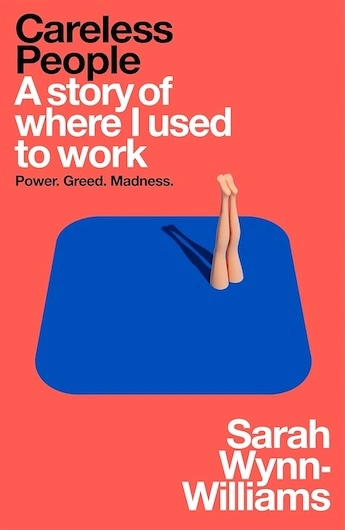Careless People is an important book but not without issues

Careless People by Sarah Wynn Williams is nothing less than an explosive takedown wearing the jacket of a tell-all memoir. The book can be frustrating at times due to the author’s decisions, but the gossipy inside stories tend to reel you back in and keep you engaged. There will undoubtedly be passages that make you want to yell, ”Just quit this job, please!”, only to be strung along in the next chapter to see how deep this pit goes. Despite this I was able to tear through the book, devouring the almost 400-page tome in a couple of sittings.
The popularity of this book is also another glaring example of The Streisand Effect, which states that attempts to suppress information ultimately lead to more attention. Meta’s efforts to quash this book before its launch might seem obvious, considering the oodles of salacious cans of worms it opens up for the tech giant. In terms of narratives and facts, there might be little new that it brings to the table. It’s the insider’s perspective that makes it a fresh take.
The most fitting description I’ve found of this book is from a Wired article calling it a Big Tech–themed episode of White Lotus. Or as I would call it: The Zuck, Sheryl, and Joel show. Mark Zuckerberg appears as the petulant man-child, from being unable to bear losing in board games to making impulsive calls to run for president. Sheryl Sandberg comes off as the classic feminist-in-a-business-suit, peddling her Lean In Kool-Aid while bending those very values to fit her own agenda. Joel Kaplan plays the quintessential Republican, staunchly pushing an America First policy while treating codes of decency and ethics as disposable.
Yes, the descriptions might come off a bit caricature-ish and are so by design. This is further reinforced by numerous claims of Wynn Williams being an unreliable narrator (Tweet), which brings me to the issues of it bordering on some form of gonzo journalism.
The book is perched on Wynn Williams’ lucid and engaging storytelling abilities, albeit leaning heavily on gossipy anecdotes. The contents of the book manage to scratch that primordial itch of leaning into gossip, wanting to be more in on the scoop. Each episodic narrative is divided into bite-sized chapters, almost as if it’s optimized for consumption.
The author’s decisions can feel frustrating at times, and this is a recurring complaint among many readers. It reeks of parallels to being in an abusive relationship, one that gives you the impression you’re mentally out of it, without ever taking solid steps to leave.
Wynn Williams paints herself as the only one with a moral compass amidst the leadership. She further positions herself as a lone warrior, but as her former colleague points out:
“There were lots of Sarahs fighting their own battles in their own departments throughout the company, though the book suggests that she was an island of one.”
The claims accusing her of stealing credit for work she presents as her own don’t help her case either.
So yes, there are issues. But they don’t put a dent in the overall argument here. Meta is no less evil, considering its laundry list of scandals and missteps — like the Cambridge Analytica election scandal, the Myanmar genocide, and knowingly targeting vulnerable teens. The list goes on, all of it sometimes conveniently brushed aside to aid the noble cause of connecting every person in the world.
Even with the narrative issues and accusations that the book is just a play to rake in some sweet bestselling-author money, standing up to a tech giant with a trillion-dollar market cap to call out its flaws and demand accountability takes a lot of courage.